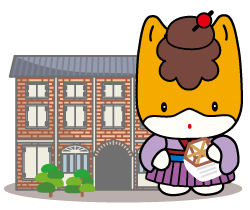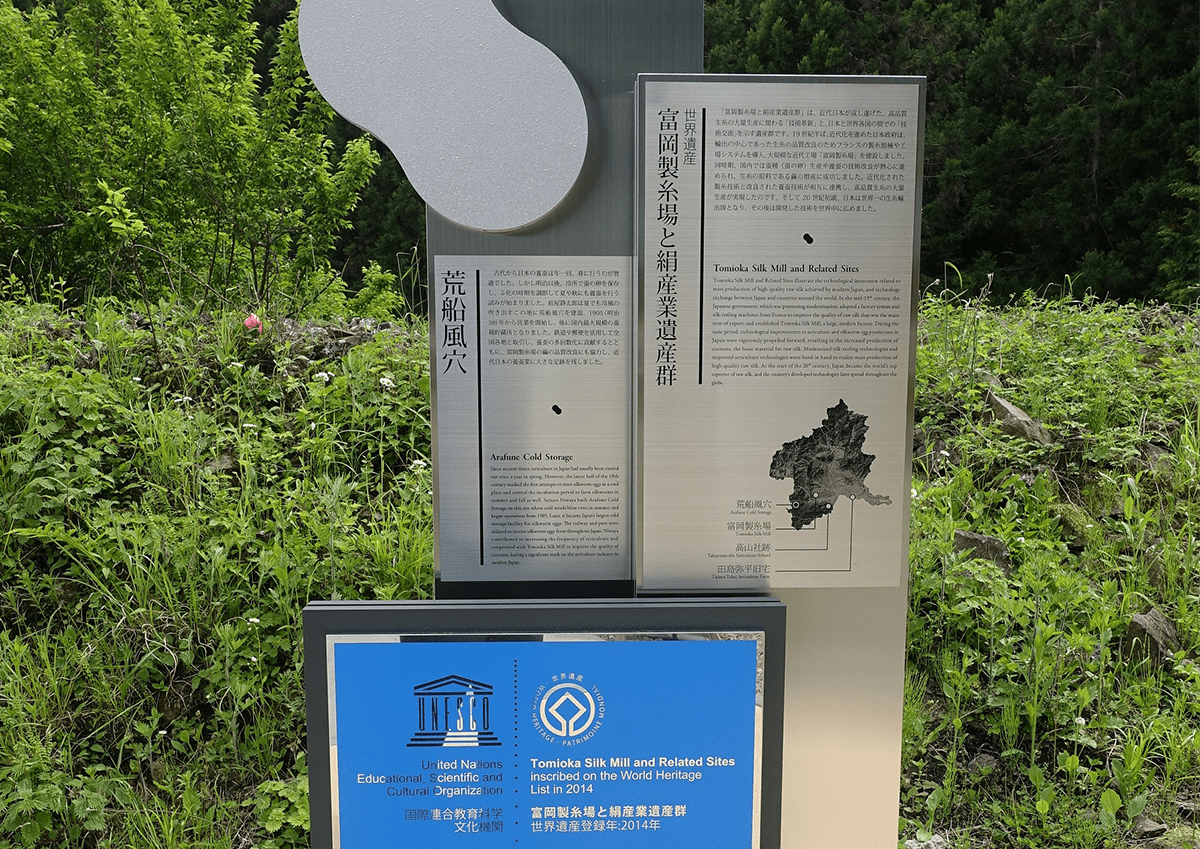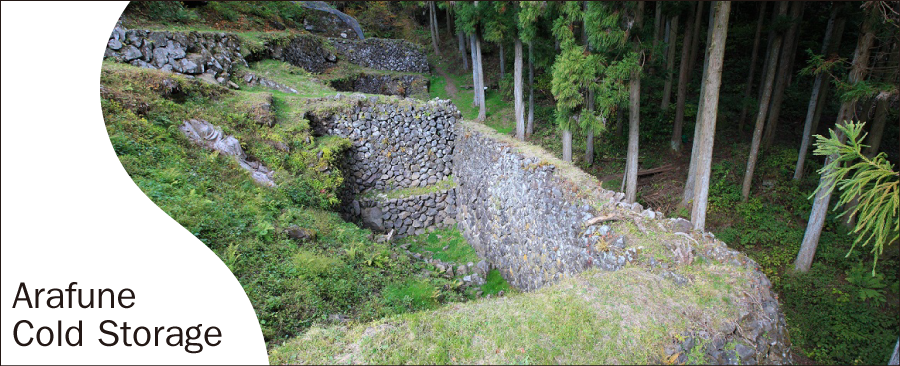
As sericulturists began to control the living environment for silkworms, they realized it was also possible to manage when silkworm eggs hatched. They could delay hatching by keeping the eggs at a constant cold temperature. This meant that instead of just one silkworm growing season per year, multiple crops of cocoons could be produced.
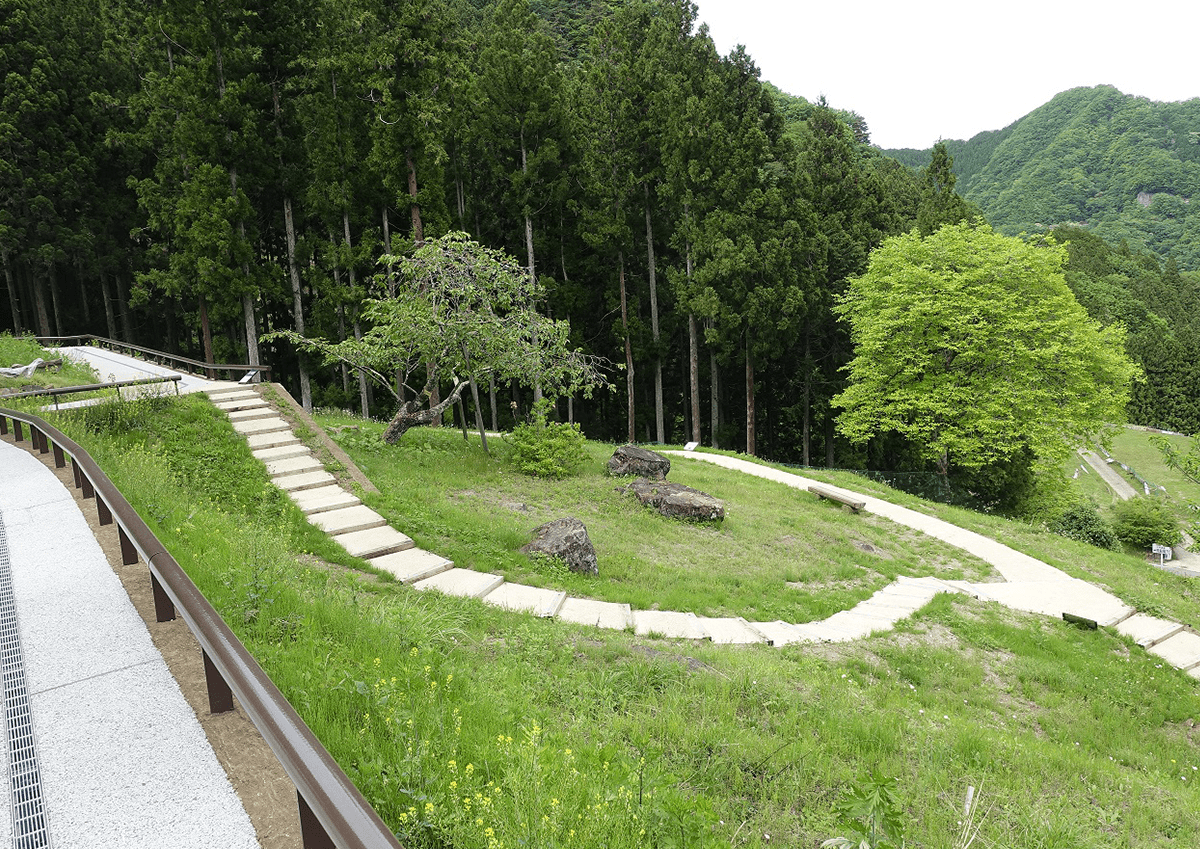
In the prerefrigeration era, a site was developed near Mt. Arafune, west of Tomioka, where naturally chilled air could be trapped for cool storage of the eggs. A 400-meter-long tumble of boulders on the mountain’s steep slopes, which is the result of an ancient landslide, traps rain and snow in the gaps between the boulders. The resulting cold air naturally flows down the mountain.
Arafune Cold Storage was built at the bottom of the boulder field, where the cold air emerges from the boulders. Stone enclosures capture the cold air and multi-storied wooden storage units were built inside to keep the silkworm eggs cool. By controlling the air flow, a steady temperature could be maintained year-round; the temperature of the air emerging from the boulders was well below freezing in winter and typically did not exceed 5°C in summer.
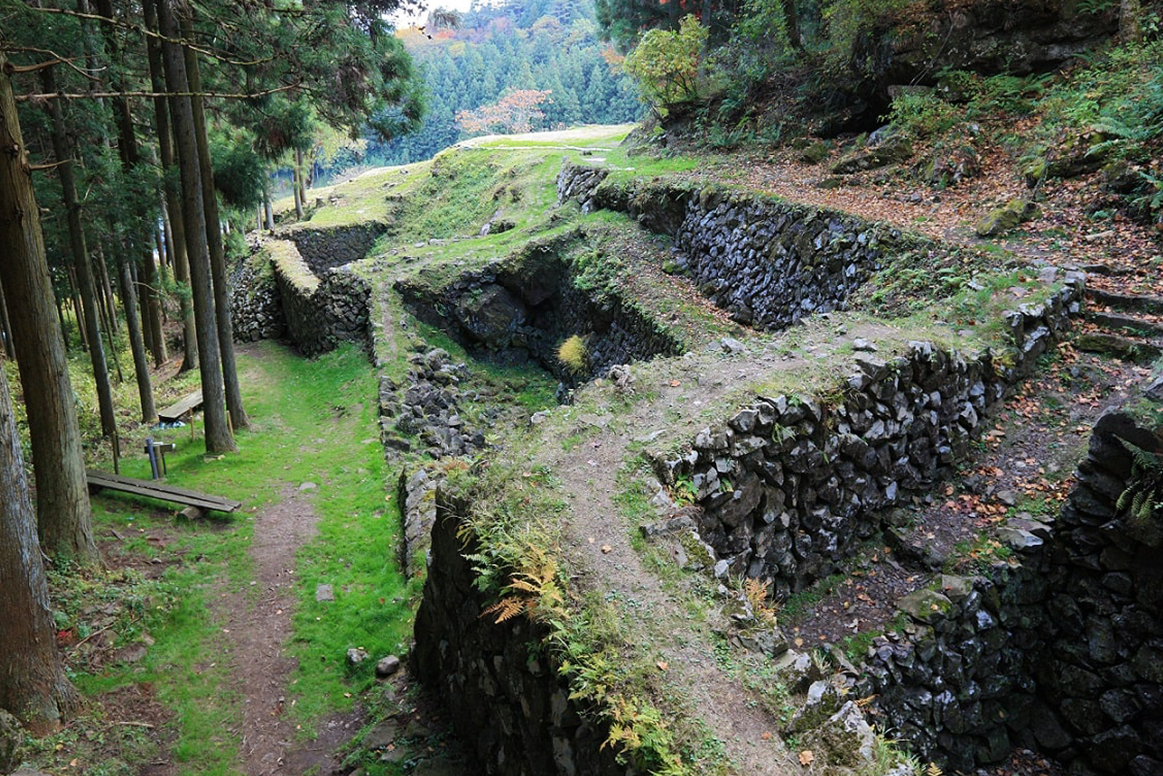
Between 1905 and 1914, three cold storage units were built at Arafune Cold Storage and sericulturists around Japan and the Korean Peninsula stored silkworm eggs there.
Eggs were laid directly onto labelled paper cards and shipped to the site after being tested for disease. The cards were carefully catalogued so that they could be readily accessed and returned to their owners as required. The facility had the capacity to store as many as 1.1 million such cards.
Electric refrigeration rendered Arafune Cold Storage obsolete by 1935 and the facility fell into disuse. Eventually the wooden storage units were dismantled, leaving only the high stone walls that remain today. At the base of the boulder field visitors can feel the cold air that still pours out from the gaps between the boulders.
Visitor Information
- Address : Ko10690-1, Minaminomaki, Shimonita Town
- Hours: Closed to visitors in winter (December to March). Entrance into the cold storage facilities is prohibited.
- Directions: Approx. 30min. by taxi from Shimonita Station, Joshin Dentetsu Line. Approx. 50min. by car from Shimonita I.C., Joshinetsu Expressway. / There are traffic restrictions in the area. Please visit by way of Kozu Dairy Farm.
- Charges : Adult 500yen
Contact : Shimonitamati-Rekishikan
Tel : +81-(0)274-82-5345


